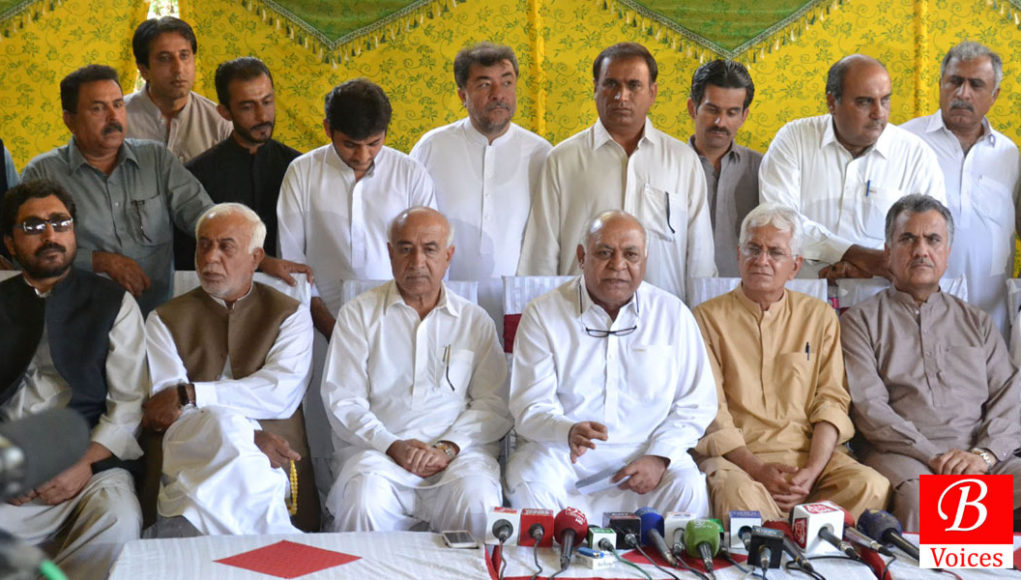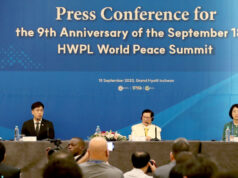Adnan Aamir
Between October 28 and October 23, National Party held its fifth national congress. In this congress, 800 councillors from across the country voted to elect new office bearers of the party. This election marked the end of Senator Hasil Bizenjo’s tenure as the president of National Party who was replaced by former Balochistan chief minister Dr Malik Baloch. This change of guard at the top represents a shift in the approach of the National Party.
National Party was founded in 2003 as a political party in Balochistan, which spoke for the rights of the middle class. It aspired to rise above tribal politics and its agenda was to work for the rights of common people. The party boycotted the 2008 elections along with other Baloch and Pashtun nationalists, as a protest against General Musharraf’s emergency. By 2013, National Party was a major force in Balochistan and secured 11 seats in the general elections. Thanks to blessings from Nawaz Sharif, National Party formed a coalition government in Balochistan from 2013 to 2018. Dr Malik Baloch served as chief minister of the province between 2013 and 2015. Senator Hasil Bizenjo served as federal minister for ports and shipping between 2016 and 2018. During its rule, National Party lost popularity due to poor governance and failure to deliver. Consequently, National Party was wiped out in the 2018 elections – it failed to win a single seat in Balochistan.
Read also: Balochistan will not Transfer Ownership of Land for Any Foreign Project: Jam Kamal
After the elections, National Party lost its position as a leading party in the province. It is not even part of the parliamentary opposition in the Balochistan Assembly.
The national congress was called in the last week of October to keep the party relevant and pump some oxygen into it. More than 800 councillors across the country attended the Congress, who also voted for leadership elections. The party, which is a Baloch nationalist party, has party units across the country. It is the second political party in Pakistan after Jamaat-e-Islami to conduct elections for its leadership. In 2015, National Party was termed the second most democratic party in Pakistan by Pakistan Institute of Legislative Development and Transparency (PILDAT).
Dr Malik Baloch was elected president of the party and former spokesman of the Balochistan government Jan Buledi was elected general secretary. Senator Hasil Bizenjo has been effectively side-lined from the top decision-making body of the National Party. Sources within the party told The Friday Times that most groups within the party had decided to support Dr Malik Baloch for the leadership position after many deliberations.
There are multiple reasons behind the party’s decision to reorganise its party structure. First, the party wants to re-energize its base and try to make a comeback in the political landscape of Balochistan. The party became unpopular largely due to the decisions of Hasil Bizenjo. He was the face of the National Party which lost the 2018 elections. Therefore, it was deemed necessary to replace him to make a fresh start.
Ever since its poor performance in general elections, National Party has been active in opposition
Second, Hasil Bizenjo had surprisingly adopted a harsh anti-establishment approach in the last few months. Although Bizenjo has always been a pro-establishment politician, he changed his attitude due to his alliance with PML-N’s Nawaz Sharif. He openly blamed the establishment for rigging the Senate chairman elections. He was also critical of the treatment meted out to Nawaz Sharif, allegedly by the establishment. He also spoke bluntly about alleged rigging of elections in Balochistan by the establishment. This attitude was proving to be heavy baggage for National Party and replacing him with the soft-spoken Dr Malik Baloch was seen as a way of mending fences with the establishment.
The third reason for side-lining Bizenjo was his tribal politics. In the 2018 general elections and the subsequent by-election in Wadh (Khuzdar), National Party supported Shafique Mengal who was nominated in murder cases of Levies personnel. He was also rumoured to be a supporter of sectarian militants. He was supported by the National Party because the local leader of the party, Sardar Aslam Bizenjo, a cousin of Hasil Bizenjo, has a bitter political rivalry with Balochistan National Party’s (BNP-Mengal) chief Sardar Akhtar Mengal. Just to settle scores with Akhtar Mengal, Aslam Bizenjo supported Shafique Mengal and Hasil did not object. Later, Hasil Bizenjo denied that the National Party had supported Shafique Mengal. He termed the support of his cousin to Mengal as a tribal matter. This reportedly created a rift in the party. Informed sources confided to this scribe that National Party leaders from the Makran division of the province had great reservations about this decision by Bizenjo and this became a good enough reason to show him the door.
Furthermore, the clash of the National Party with its rival BNP was more due to an ego clash between the BNP chief and Hasil Bizenjo and less about any serious political rivalry. Now that Hasil is no more on the saddle, this has paved way for a potential rapprochement between the two parties.
Currently, BNP-Mengal has 10 seats in the Balochistan Assembly and four in the National Assembly. However, the circumstances could force BNP-Mengal to join forces with National Party to press hard for rights of Balochistan. Now that Hasil is out of the picture, the probability of this outcome has increased.
Ever since its poor performance in general elections, National Party has been active in opposition. This party vehemently opposed the speculated deal of handing over Rekodiq Gold Mines to Saudi Arabia without consulting the Balochistan government. The protests of the National Party against this issue compelled the PTI government to take a backfoot on handing over Rekodiq to Saudi Arabia. In addition, the National Party is also vocally opposing any attempts to roll back the 18th constitutional amendment, which empowered the provinces.
The active opposition and changes in the leadership epitomizes the problem of political parties in Balochistan – they look good when in opposition, but when in government, they completely disregard the people. The wiping out of National Party in 2018 elections was the result of their failure to make good the promises made to their support base. Now, it will take National Party a long time before it can be relevant in the Balochistan again. However, the changes in the leadership shows that the party is making an effort to make a quick comeback.
Originally published in The Friday Times
Share your comments!








